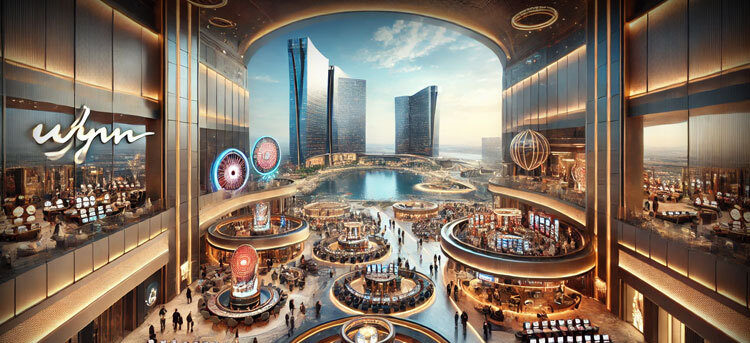IH Group Set to Open Casino on Rota Island in 2025, Major Investment in Northern Marianas
IH Group Set to Open Casino on Rota Island in 2025, Major Investment in Northern Marianas South Korea-based IH Group is making significant strides in expanding its presence in the Pacific with plans to launch a major casino resort on the island of Rota, part of the Commonwealth of the Northern Mariana Islands (CNMI). The group’s ambitious project will include a casino, a 276-room hotel, and a waterpark, all scheduled to open in early 2025 at the Rota Resort & Country Club, according to G3 Newswire. This development represents a major investment in the region, aiming to boost tourism and transform the island into a key entertainment destination. IH Group was granted a casino license in July 2024, which will allow them to operate both land-based and online gaming facilities on the island. The license, which comes with an annual fee of $200,000, requires the group to meet a minimum investment threshold to ensure the project’s scale and significance. The casino will feature various gaming options, including five baccarat tables, one blackjack table, and 30 slot machines—adding to the company’s already established presence on the island. Plans for the Future: Additional Casinos and Online Gaming The IH Group’s current efforts are only the beginning of their broader strategy for Rota. Chair of IH Group, Kyunam Kim, cited by Marianas Variety, has confirmed that beyond the first casino at Rota Resort & Country Club, the company has long-term plans for the development of two additional casinos, as well as an online gaming operation. This would position Rota as a burgeoning hub for both physical and digital gaming experiences in the Pacific region. Kim also shared that construction equipment and a team from South Korea are already prepared to begin work on the site. The company is just waiting for the Department of Public Lands to issue a request for proposals for the land lease of the Rota Resort, after which renovations and further development will commence. “Our ultimate goal is to create a ‘city project’ that was initially delayed due to the COVID-19 pandemic,” said Kim. “But now, we are fully prepared to move forward with our plans.” Overcoming Challenges and Moving Forward IH Group’s journey in the CNMI has not been without its challenges. Two years ago, the company entered into a $150 million investment contract with troubled casino operator Imperial Pacific International (IPI) to continue the construction and operation of IPI’s hotel casino in Saipan. However, the deal ran into complications when IH Group discovered that IPI was heavily in debt, and the individual they had negotiated with, board adviser Hongtao Su, did not have the legal authority to act on IPI’s behalf. Reflecting on the situation, Kim expressed his disappointment but emphasized his focus on the future. “At this point, I just want to put that behind me. I spent a lot of money, but I didn’t pursue IPI for the losses. My focus now is solely on the Rota project,” Kim said. Despite the setbacks with IPI, IH Group is determined to proceed with their plans for Rota, investing heavily in the island’s future. So far, the company has invested nearly $6 million in construction equipment and preparations alone, showing their commitment to the project. Local Impact: Boosting Rota’s Economy and Tourism The development of the casino and resort is expected to have a significant positive impact on Rota’s economy. With the introduction of the casino, hotel, and waterpark, the island is set to attract tourists from around the region and beyond, bolstering its tourism sector. This project will also create numerous job opportunities for local residents and contribute to infrastructure improvements across the island. Additionally, the investment in the casino and resort will enhance Rota’s profile as a destination for entertainment and leisure. By offering a comprehensive resort experience, the project will help diversify the island’s tourism offerings, drawing visitors for both gaming and family-friendly activities.








